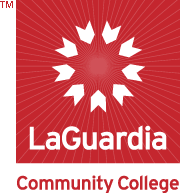
Publications and Research
Document Type
Article
Publication Date
12-16-2021
Abstract
The COVID-19 pandemic has had a profound impact on adult education programs throughout the world, abruptly transforming in-person instruction to distance teaching/learning. Can the lessons learned from adult students, especially related to the “digital divide,” be leveraged to enhance adult education and create more inclusive policies and practices moving forward? To grapple with this question, this exploratory qualitative study sought the insights of adult learners in the northeastern United States through an online survey of primarily open-ended questions. Through multiple rounds of coding using a trauma-informed lens, the following themes emerged: (a) anxiety and loss; (b) distractions, adjustments, and balance; and (c) distance learning and its advantages and disadvantages. Recommendations for modifying preservice preparation and ongoing professional development for educators of adults were asserted. These recommendations focused globally on addressing adult students’ needs for ongoing academic and psycho-social-emotional support to enhance their digital literacy and educational outcomes. Limitations of the study and areas for future research were also identified.


Comments
This is the author's manuscript of a work originally published in The Journal of Continuing Higher Education, available at https://doi.org/10.1080/07377363.2021.1992077.